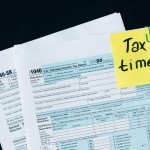Introducing PCCU’s new personal financial education Zoom classes — The Perfect Flex! The first in a series of personal financial education events, the first Perfect Flex will focus on first time home buyers. Whether you’ve decided to make your purchase now or three years from now, this event will be the perfect time to get your questions about the home buying process answered! Not sure how much to save for a down payment? How long…
As March dawns and we see the first signs of spring we have numerous reasons for hope. Right now, Hoosiers age 60 and older are eligible to receive a COVID-19 vaccination, along with health care workers and first responders. This is good news for not only Hoosiers in general, but also PCCU members. As the supply of vaccines grows, and more of us become eligible for them, we’re getting closer to the day we can…
Every time the mortgage rates drop, it’s tempting to make a call to your credit union to see what kind of a deal you can get to refinance your home. Before you make that call, take a moment to learn why there’s more to refinancing than just the attractive lower rate. Why are you interested in refinancing? Lower rates, smaller monthly payments and fixed rates are all good reasons to consider refinancing your home. Determine…
Whether to your own children, grandchildren, and nieces and nephews or the child of a close friend, one of the most important things you can teach is how to manage money and invest for the future. The Three-Jar Allowance To learn how to manage money, children need some money to manage. Typically this money comes from from an allowance or from doing small jobs for friends and neighbors. As a first step, you’ll have to…
Many major life changes, such as buying a new home, changing jobs, getting promoted, started a business, having a child, and more, will have tax implications. But that doesn’t always mean you’ll owe more to the federal government. If you plan ahead, you can make decisions that will reduce or at least postpone the tax you owe. The only catch is that you usually need to get everything taken care of by December 31. Winter/Spring…





